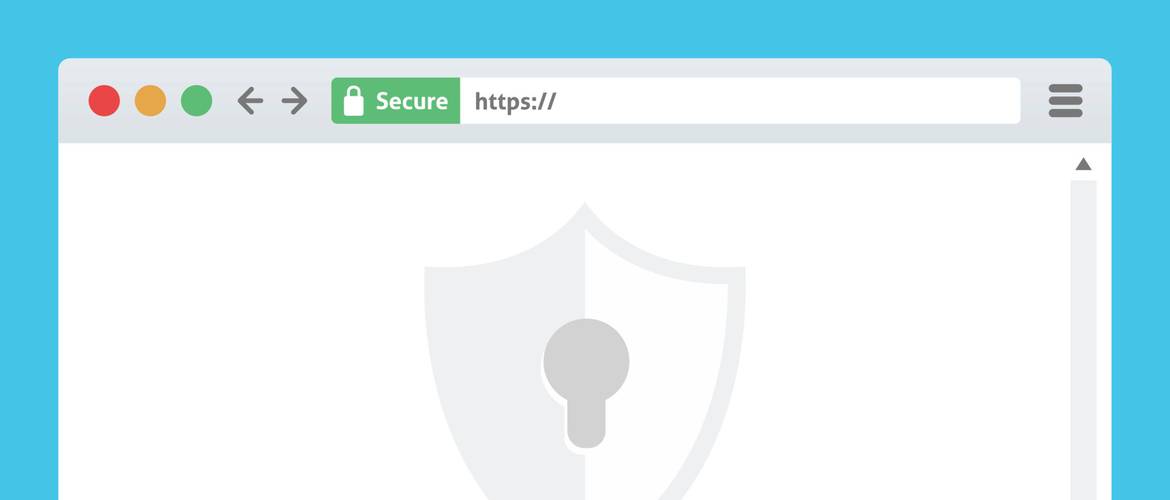In recent years, it seems as if reports of large-scale hacks on recognizable brands have become common occurrences, doesn’t it? With hackers able to infiltrate well-known brands you’d expect to be impenetrable, it may make you wonder how you can protect your own website from people who might have nefarious or even malicious intentions.
Luckily, you’re not powerless when it comes to protecting your website and the people who visit it. SSL certificates exist specifically to protect websites and information related to their visitors.
An Introduction to SSL Certificates
SSL is shorthand for “secure sockets layer,” which is a type of security for websites. This kind of protection establishes a secure connection between a user’s web browser and the web server they’re visiting. SSL certificates used to be primarily reserved for eCommerce sites and others that processed sensitive information, such as credit card numbers, social security numbers, and private addresses. That’s no longer the case, however.
Today, just about every reputable website has an SSL certificate. Whether your website consists of a blog with only a few posts or it’s an eCommerce site with thousands of pages, your website should have an SSL certificate. To better understand why it’s so important to have an SSL certificate for your website, it can be helpful to know what one does in more detail.
SSL Encryption
One of the ways an SSL certificate provides protection is by encrypting data. When information is shared over the Internet, the data is sent from one computer to other terminals until it ends up at the destination server. Any of the computers between the start and endpoints can see the shared information as it passes from one to the other unless the data is encrypted.
If your website has an SSL certificate, it will make any data sent from your site unreadable to all units except the destination server. Because the sensitive information is unreadable, it’s safe from hackers and identity thieves.
Provides Authentication of Your Site’s Identity
An SSL certificate informs people that your site is what it claims to be by authenticating its identity. To get an SSL certificate, an SSL provider will validate your identity and verify your company. Depending on the type of SSL certificate you want to get, you may have to undergo multiple identification checks before one will be issued.
An independent third-party known as a Certificate Authority will verify your identity and your organization. Once the Certificate Authority has fully vetted you and your company, your chosen SSL provider will issue your digital certificate and you’ll receive trust indicators. Those trust indicators are like signs that prove your integrity.
Instills Trust
SSL certificates instill trust in your website’s visitors. Browsers typically offer visual cues that indicate whether a given website is secure with SSL. An icon that’s in the shape of a real-life padlock or a green bar are examples of cues that demonstrate that related websites are secure and trustworthy.
In general, websites that have an SSL certificate change from HyperText Transfer Protocol, or HTTP, to HyperText Transfer Protocol Secure, or HTTPS. When visitors see that your URLs start off with HTTPS in the address bar instead of HTTP, it’s yet another sign that your site is secured with an SSL certificate.
Making the switch to HTTPS after you secure an SSL certificate is key for more reasons than “just” indicating your site is safe. Switching over can also protect consumers from phishing scams. Criminals send phishing emails to unsuspecting consumers who don’t realize the emails aren’t really from the websites they claim to have originated from.
Because the people behind phishing emails can’t pass an identity check in your name, they can’t get an SSL certificate for their digital “impersonations.” Since recipients won’t see a lock, green bar or HTTPS, it decreases the likelihood that potential victims will fall for a phishing scheme.
Helps Websites Rank Better in Search Engine Results Pages
Several years ago, Google started to favor websites that use HTTPS in its search engine results pages. In 2018, Google began flagging sites lacking an SSL certificate as unsafe and ranking them lower in SERPs. To rank more favorably in SERPs, get an SSL certificate and make the switch to HTTPS if you haven’t already done so.
Satisfies PCI Compliance Requirements
If you accept credit card payments online, you must submit to several site audits that prove you’re in compliance with the Payment Card Industry requirements. The PCI has 12 main requirements you’ll have to follow and having an SSL certificate installed on your website is one of them.
Types of SSL Certificates
While every website should have an SSL certificate, not every website needs the same type of certificate. There are three types of SSL certificates that are widely available from trustworthy SSL providers.
The most basic type of SSL certificate is a standard one. A standard or domain validation certificate is appropriate for blogs and personal websites. An organization validation certificate, or OV, is advisable for many online businesses as well as non-profits. Ecommerce websites are well-advised to secure extended validation certificates, which are referred to as EVs.
DVs are the least expensive type of SSL certificate and the easiest kind to maintain. As you may have anticipated, EVs are the most expensive kind of SSL certificate and the most difficult type to secure and hold onto. OVs are in the middle of those extremes in the contexts of cost as well as security levels.
Trust Double Up Digital to Handle Your Website Security
Navigating the world of website security can be a hassle if you’re not familiar with website design and development like our talented, Atlanta-based team members are. Unfortunately, you can’t just ignore the need to secure your website in today’s connected society. If you do, it can hit you in the figurative pocketbook in the form of lost sales due to a lack of trust in your site.
There’s no reason to risk losing sales. Let Double Up Digital handle your website security. From securing an SSL certificate to creating 301 redirects to transition your site to HTTPS and more, we’ll handle it all for you. Let’s get started today!






